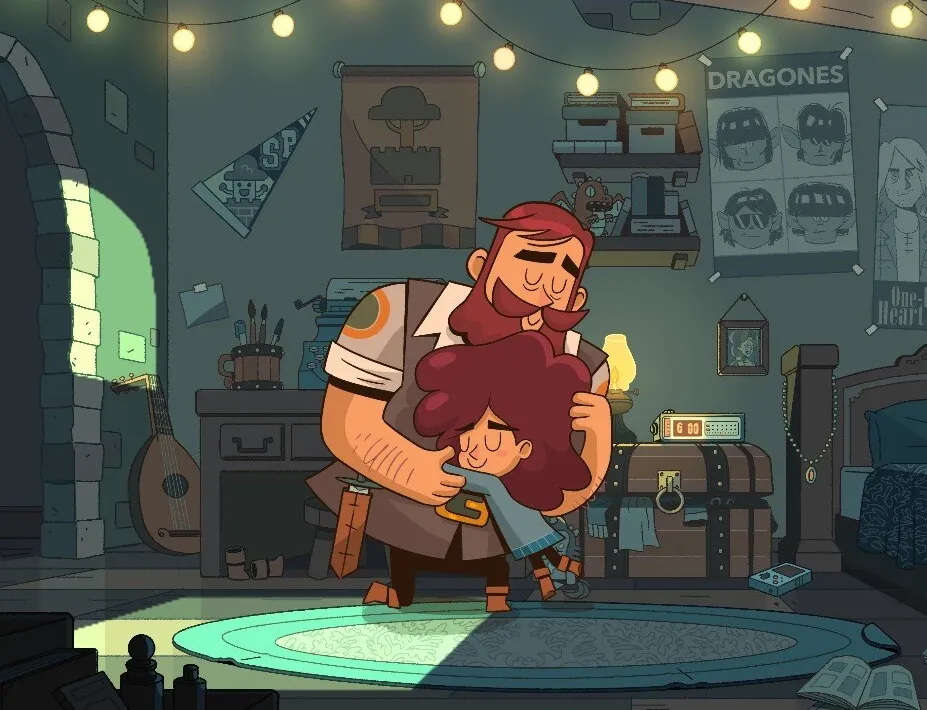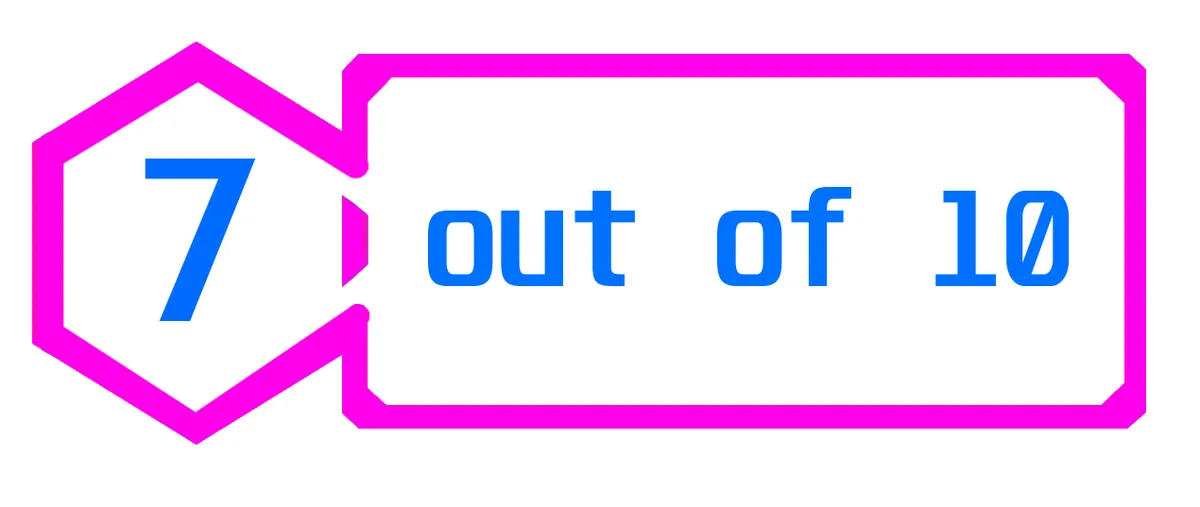Lil Guardsman REVIEW – papers and friendship, please!
Rhianne Ward

Note: this post has been transferred over from my old Wordpress blog. I could go through the trouble of reformatting everything with supporting images and italicisation and whatever else, but I don't really have time to do all that unfortunately, and I'd prefer to spend my time writing new things than labouring over the old. So, if anything looks a little weird or messy, that's why. I hope you enjoy it regardless!
Papers Please is not just one of my favourite games ever, it is a core memory in my gaming journey. Lucas Pope’s incredible 2013 paperwork-em-up casts you as the person manning a checkpoint, where your (initial) sole responsibility is deciding who can enter your home nation – the fictional Soviet-adjacent Arstotzka – and who must be turned away at the gate. You determine this by cross-referencing papers with the person who has them, checking their height, age, gender and so on all hold up to scrutiny. The task is straightforward at first, but with every day comes a new directives from your higher-ups. This means more paperwork to read and new demographics to consider as political circumstances affect the ever-changing rules.
You want to do a good job because you have a family to provide for. Mistakes cost you income, and too many mistakes incur a fine, which can mean choosing between paying for food or heating at the end of the day, complicated further when someone falls ill and not having the money for medicine could mean a death you could have prevented were you simply better at your job. It all comes together to create a tense, foreboding experience that tests the limits of your capacity for empathy when pitted against your need to survive.
It’s a truly phenomenal game – one of the best, in my eyes – and a successful one both financially and critically, so it surprises me that more indie games didn’t jump on this compelling gameplay loop. The only other game that comes to mind is Not Tonight, though admittedly I haven’t played it so I’m going off of secondhand experience. That is, of course, until I played Lil Guardsman.
Hilltop Studios’ debut game is many things, but first and foremost, it is guided heavily by its influences. The most apparent one is certainly Papers Please, given you play as the eponymous Lil (last name is not Guardsman, before you ask), a lil girl who must cover for her dad while he gambles on the local goblinball game. She’s tasked with chatting to the funny fellows seeking access to The Sprawl – Lil’s home city – and figuring out if it’s safe to permit them entry. This decision is based on what is essentially a vibe check, though you have a wardrobe of gadgets and gizmos, such as the X-Ray machine or the truth spray, which help support your case.
The reward is simple: do a good job and earn money to upgrade your tools – some of which are definitely more useful than others – and participate in other activities, while a bad job will net you less cash, and doing an impressively bad job will land you a game over. At least, I assume that’s what happens, because it never happened to me. While I’d like to think that’s because I’m just that smart, truthfully the game is pretty easy-going unless you’re actively trying to fail.
In fact, the entire vibe is very different to its inspiration. While Papers Please is a harrowing tale that lands you in the centre of an oppressive regime and forces you to sacrifice your morals out of desperation, Lil Guardsman is mainly a comedy involving all sorts of colourful characters to meet and hijinks to uncover. It’s a very silly game that doesn’t take itself too seriously most of the time.
You might think that wouldn’t exactly gel with this kind of gameplay loop, but surprisingly, it fits beautifully. I think the trick is a shifting in priorities. You aren’t really playing for your life anymore, but you are somewhat responsible for the little community surrounding you. Your choices of who to let in or keep out has consequences that reflect in the game’s ongoing story. It’s a ‘choices matter’ type situation, and the only way this works at all is if the game is well written enough to make you care about the characters inhabiting the space.
Luckily, Lil Guardsman is filled to bursting with sweetness and heart, so liking these people could not be any easier. The main cast are a bunch of flops, but lovably so. Lil is a snarky kid with basically zero ability to recognise authority but a kind heart that makes her reliable to most. Meanwhile, her dad Hamish is an irresponsible dummy with a potential gambling addiction and a bad habit of facilitating child labour, but he loves his daughter so, so much, and there’s a lot to their relationship that goes unsaid but you can just feel the strength of the bond between them.
It’s a combination of lovely writing and phenomenally warm vocal performances by Jillian Welsh (Lil) and Rodrigo Fernandez-Stoll (Hamish). It’s worth mentioning now that the game is fully voiced, and based on the ‘Meet The Cast’ videos on their YouTube channel, it seems like Hilltop sourced their talent from actors and comedians local to their hometown Toronto, and that’s just really cool. Everyone brings their A-game, and I can’t think of a single weak performance in this game. These voices breathe so much unique life into this fantasy world, and I’m not sure the sense of cosy familiarity that makes this game so special would have been quite as effective without them. Specific shout-out to Jillian Welsh, who essentially carries this entire game on their shoulders, and does an incredible job at it too.
I think what struck me about Lil Guardsman the further in I got was that being kind always paid off in memorable ways. Sure, I get in trouble for letting in two goblins stacked on top of each other masquerading as a wizard, but doing so gave me an in with the goblin revolutionary front fighting to secure equality for all non-humans in The Sprawl (Viva La Goblucion!). That came just after it seemed as though I would have to pick a side between three terrible picks for succeeding the throne in the absence of the recently dead king. I was worried the story would divert into a generic “life sucks, time to grow up” narrative where there’s no real winners except for the ruling class. Not that this would be automatically bad, but I’ve seen a lot of stories like that and I was due a more optimistic tale, I think. Lil Guardsman provides that better world, but not without its fair share of believable hardships that had me legitimately tense when presented with certain decisions. This image isn’t relevant to the text but I wanted to show it because Buttface had me crying with laughter every second he was on screen. God bless you Buttface, you piece of shit.
Lil Guardsman rarely shies away from the consequences of your actions, but it does have a sweeter outlook on people than most media. The people who decide to let into the city will oftentimes appear in the game’s explore-y sections in between guardsman duties. They’ll talk to you about what they’ve been doing, how they’re feeling, and sometimes will undergo little arcs, all of which would be entirely missable if you choose to send them packing. The game rewards thoughtfulness with more stories from these strange folks, and it’s just lovely. It all rounds out with a pretty fun ending that ties everything together in a satisfying way, but ultimately it was the little moments in between all the main plot stuff that kept me coming back. I’m awfully fond of these lovely idiots, and I wish only the best for them.
I think this game has been a nice reminder of the magic of how art influences all other art that touches it, and how a shift in perspective can do a lot to make a work feel distinct. Whenever I occasionally dabble in my own fiction writing, I often worry that what I’m making is hacky or bland. Hell, I even feel that way with these reviews sometimes too, worrying that I’m possibly falling into the trap of regurgitating the opinions of others. The truth, however, is that influence in art is unavoidable. What matters is being reflective of that influence to the best of your abilities, and learning to craft your own voice around tastes particular to you alone. Lil Guardsman is, among many other lovely things, that feeling to me. It’s made by human beings with a love for games, and in a world where derivative AI becomes more prevalent than ever, these experiences are valuable, beautiful and, most of all, cool as hell.
